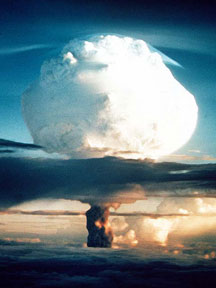The mushroom cloud from a nuclear weapon test in 1952. The explosions of nuclear weapons emit large amounts of dangerous radiation.
Click on image for full size
Photo courtesy of National Nuclear Security Administration/Nevada Site Office.
Radiation is Dangerous to Humans
Radiation can be harmful to humans. Radiation can harm people directly by damaging their cells. The cells might stop functioning, or they might be unable to reproduce. Radiation can also cause cells to reproduce in an out-of-control fashion, causing cancer. It also causes radiation sickness, an ailment with various symptoms depending on the type of radiation a person was exposed to and on the size of the dose received. Radiation sickness can be fatal when high doses of radiation are involved.
Radiation can also interfere with human reproduction. It can cause sterility, making reproduction impossible. It can also cause mutations in developing embryos, which are usually detrimental or even fatal.
Astronauts must be especially careful about radiation, since radiation exposure is a constant danger in space.
We are constantly exposed to small doses of radiation from various natural sources as well as from human-caused sources such as medical and dental X-rays. Small doses of radiation are generally not especially harmful; our bodies have developed defenses that repair most damage from small doses of radiation.
You might also be interested in:
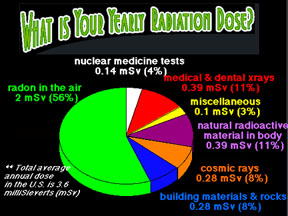
The text for this level hasn't been written yet. Please check the "Intermediate" or "Advanced" level of this page (click on the bar near the top of this page).
...more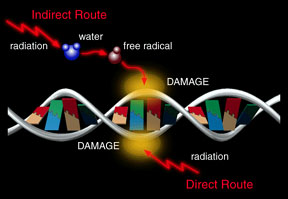
High frequency radiation or fast moving particles plow into a living cell with enough energy to knock electrons free from molecules that make up the cell. These molecules with missing electrons are called
...more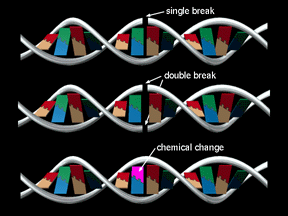
Whether or not a cell can repair itself after being damaged by radiation depends on the type of damage to the cell's DNA. Type of Damage Prospects for DNA Repair Single strand break in the DNA Can usually
...more
Radiation can be harmful to living creatures. Radiation can harm living things directly by damaging their cells. The cells might stop functioning, or they might be unable to reproduce. Radiation can also
...more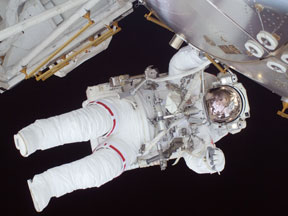
Astronauts are exposed to many different types of dangerous radiation in space. Space agencies, like NASA, must carefully monitor the radiation exposure of astronauts to make sure they remain safe and
...more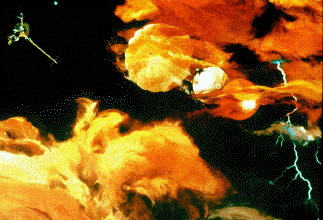
Jupiter's atmospheric environment is one of powerful winds, going 250 miles per hour, and temperatures from -270 degrees to +32 degrees (freezing temperature). These winds make it hard for life forms to
...more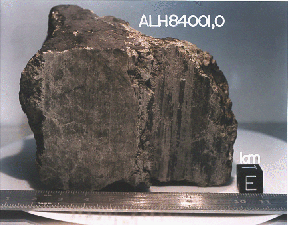
In July, 1996 a team of scientists said that they had discovered possible fossils of bacteria in a meteorite named ALH84001 that came from Mars. It was found in Antarctica in 1984 after having landed there
...more


